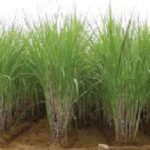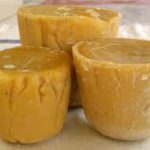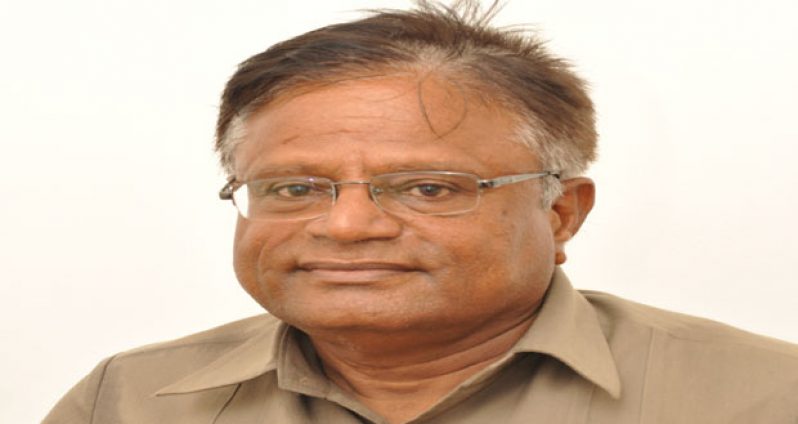ORGANIC Agriculture Scientist, Dr Durai Vaiyapuri says Guyana is a blessed country and can become an agriculture powerhouse, but it needs to first re-examine the use of chemical fertilisers in planting.The scientist, also a sugarcane expert, who has been doing research work in a number of areas in the agriculture sector, said the richness of Guyana is astounding.

He pointed out that some 80 per cent of Guyana’s vast forest is preserved, providing oxygen, a service to the world; there is good soil throughout Guyana; Guyana does not experience drastic climatic conditions; it has an abundance of land and water; there is possibility of hydro and wind power and petroleum crude in the Atlantic Ocean; the air is not polluted; Guyana does not suffer from religious conflicts; it is not affected by cyclones; and it is unlikely to suffer an earthquake.
A critical element in planting is fertiliser and the use of it. The scientist pointed out that Guyana has to pay closer attention to the use of chemical fertilisers.
“Since the advent of the discovery of NPK (Nitrogen, Phosphorus, Potassium) approximately 60 years ago, most other forms of fertilisation have been largely ignored,” he said.
Large chemical companies advertised these chemical sources of NPK, since they are cheap and easy to produce, and offer assurance of a higher profit margin.
Dr Vaiyapuri noted that as time went by, chemical distributors were firmly entrenched and established. Now, he said, chemical cost factors have increased considerably and due to the over-dosing of chemical fertilisers, herbicides and pesticides, worldwide soil damage is being closely examined.
GUYSUCO
Pointing to a local example, he singled out the Guyana Sugar Corporation (GuySuCo). All of GuySuCo lands have been continuously planted with sugarcane alone for the past 100 years, with no rotation of crop.
“They continuously use chemical fertilisers, pesticides and weedicides. They are burning sugarcane continuously trash 5mt per acre per year. Soil destroys micro and macro organisms that make the soil fertile. This is one of the reasons sugarcane yield has reduced incessantly in the GuySuCo lands,” the scientist explained.
Dr Vaiyapuri also said the local agriculture community and the government need to change the policy of using chemical fertilisers and pesticides that are poisoning the soil and making the soil infertile.
On this score, he said, there is need for a long-term vision on agriculture planning.
“We want to carefully look after our health, but are we carefully looking after our food concern?” he asked, disclosing that nowadays, “in the food we eat, we are also taking in poison”.
He warns against continuously using chemical fertilisers and pesticides. The poison mixed with foods (food grains and vegetables), is a reason for cancer, hormone deficiency, thyroid dysfunctions and other body growth abnormalities. Even breast milk of mothers is affected, therefore, affecting their growing children.
“Pesticides destroy insect pests, also destroy beneficial micro and macro organisms. Many areas today are totally devoid of earthworm probably the most powerful and beneficial soil insect we have. The earthworm ploughs the soil and serves to aerate the soil, and digest dead organic material, converting it into humus: the essence of soil fertility. The end result is that the soil is lifeless,” Dr Vaiyapuri said.
HINTERLAND AGRICULTURE
Turning his attention to a different issue, Dr Vaiyapuri said there is much promise in hinterland agriculture as regards sugar cultivation.

“There is possibility that hinterland agriculture can produce small-scale organic jaggery sugar making units to develop the organic sugarcane in the hinterlands to earn profit through the export of organic jaggery sugar to the USA,” he told the Guyana Chronicle in a recent interview. If successful, he said, this project will not only positively contribute to the local economy but will also enhance the livelihoods of hinterland residents.
Jaggery is a traditional non-centrifugal cane sugar consumed in Asia and Africa. It is a concentrated product of date, cane juice, or palm sap (see palm sugar) without separation of the molasses and crystals, and can vary from golden brown to dark brown in colour.
It contains up to 50% sucrose, up to 20% invert sugars, and up to 20% moisture, with the remainder made up of other insoluble matter, such as wood ash, proteins, and bagasse fibers.
Jaggery is mixed with other ingredients, such as peanuts, condensed milk, coconut, and white sugar, to produce several locally marketed and consumed delicacies.
Dr Vaiyapuri is currently doing research in a number of areas in the agriculture sector. These include compost, the planting system, insect control and sugarcane.
He has successfully completed a project on sugarcanes at the Skeldon Estate. The project entails the importation and cultivation of a high sugar variety CO 86032 from India.
The Indian and Guyana sugarcane were planted on one piece of land, and grinding of all the plants was done at the factory at one time.
The results show from 9 tct (tonne cane), the Indian sugarcane produced 1mt of sugar while the local sugarcane used 14 tct to produce the same amount of sugar.
A test of the sucrose content of the 6-month-old Indian sugarcane revealed that it contains 21% sucrose while local cane contains 14 % sucrose. From all indication, a decision was made by GuySuCo to use the CO 86032 which is both higher in sucrose content and yield.
By Tajeram Mohabir



.jpg)










